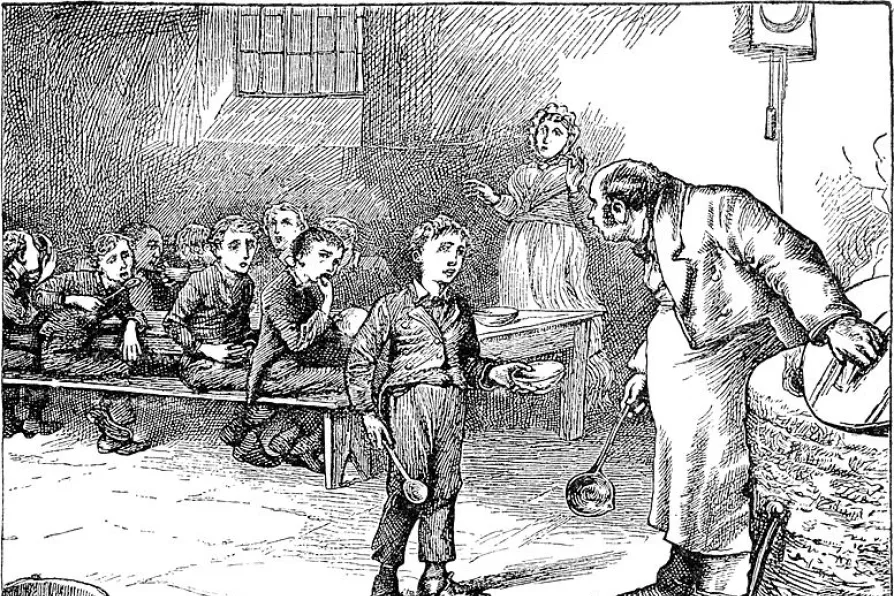As tens of thousands return to the streets for the first national Palestine march of 2026, this movement refuses to be sidelined or silenced, says PETER LEARY

 Oliver Twist asks for more
[Public Domain]
Oliver Twist asks for more
[Public Domain]
IT MAY surprise readers, but the workhouse, the grim symbol of Dickensian misery, was only finally abolished in 1930, with some locally controlled establishments still receiving “clients” until 1948.
There’s a fair few of these buildings still surviving (obviously for other usage); so, at this merry time of year, let’s have a look at the history of the workhouse — and those Tories who have unsurprisingly expressed a keen desire to see them return.
“And the Union workhouses,” demanded Scrooge. "Are they still in operation?"
“Both very busy, sir…”
“Those who are badly off must go there.”
“Many can’t go there; and many would rather die.”
“If they would rather die,” said Scrooge, “they had better do it, and decrease the surplus population.”
A Christmas Carol by Charles Dickens (1843)

With the recent release of Paul Thomas Anderson’s movie One Battle After Another, STEPHEN ARNELL gives the storied history of the British real-life left-wing urban guerillas

While Spode quit politics after inheriting an earldom, Farage combines MP duties with selling columns, gin, and even video messages — proving reality produces more shameless characters than PG Wodehouse imagined, writes STEPHEN ARNELL

The fallout from the Kneecap and Bob Vylan performances at Glastonbury raises questions about the suitability of senior BBC management for their roles, says STEPHEN ARNELL











